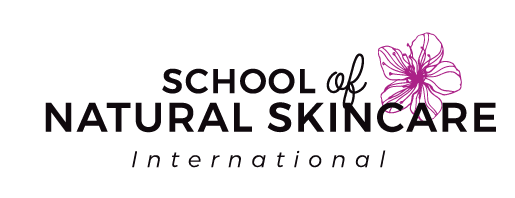What is it you want most from your skincare?
There are so many reasons people use skincare products, whether those products are off the shelf, or natural formulations they’ve made themselves.
You might want products to clean or brighten your skin, or to help you with skin that’s sensitive, oily or dry. Maybe you hope to improve a skin condition, heal or rejuvenate damaged skin, or reduce the signs of aging.
Whatever the answer, there’s one thing we think everybody wants.
It’s simply that wonderful feeling of inner confidence that comes when your skin looks and feels its radiant best.
And serums are those star skincare products that have the most effective ingredients, formulated to make a difference that you can see and feel.
So what exactly is a serum, anyway?
There are hundreds of products out there that are marketed as serums… and it’s no wonder. Serums are packed full of specialist ingredients that are targeted to specifically deliver visible and long lasting results and benefits.
That’s why they’re usually the most expensive skincare product on anyone’s shelf. So they’re not just good for your skin, they’re good for beauty brands who sell serums as a premium product.
But not all serums are the same.
In fact, there are at least six very different types of formulations that you can find labelled as serums – anhydrous serums, pressed serums, gel-based serums, emulsion-based serums, gel-cream serums and bi-phase serums.
If you want to find out more, you can read our article on the six different types of serums and their benefits here.
In addition to these six different types of serums, there are serums which are made to target specific areas of the body, eg face, eyes, lips, neck, body and hair.
Can a facial oil offer the same benefits as a serum?
There are some products sold as serums that are, in fact, facial oils.
Now, there is nothing at all wrong with facial oils – they are amongst our favourite recipes! Facial oils that have top quality ingredients, like essential oils or the more specialist carrier oils, can be very effective at nourishing the skin, improving the tone and complexion and giving a silky soft feeling.
Moisturizing is not hydrating
The oils we use for natural skincare products have many benefits and can be excellent at moisturizing the skin.
Different types of oils can moisturize the skin in different ways.
All of the oil soluble ingredients, eg carrier oils, essential oils, butters and waxes help to replenish the lipid (oil) barrier between the cells of our skin and this helps to improve the silky, soft and moisturized skin feel.
These oil soluble ingredients are known as ‘emollients’ which is a quality that softens and smooths the skin.
In addition to that, some of these oil soluble ingredients, eg butters and waxes and the thicker carrier oils, are occlusive, which means they prevent transepidermal water loss (the loss of moisture from the skin) by covering the skin in a protective layer.
So, to conclude about the benefits of these oil soluble ingredients, they are emollients and occlusives which offer great moisturizing qualities.
But there is one thing oil-based products can’t do… and that’s hydrate your skin.
To hydrate your skin you need water and water soluble ingredients.
Anhydrous (or oil-based) serums can’t do that.
Oil and water don’t naturally mix. Ingredients that dissolve in water won’t dissolve in oil, and those that dissolve in oil, simply won’t dissolve in water.
For this reason, products that are made only from oils and ingredients that dissolve in oil are called anhydrous, which means “without water”.
To hydrate your skin, on the other hand, means adding water – and so products that can hydrate must be water-based or contain water such as emulsions (a blend of oil and water with an emulsifying agent).
To formulate a product that can both moisturize and hydrate your skin, you need to create something that can harness the best of both oil and water soluble ingredients.
And that’s one reason why high-performance serums are more complex to formulate.
To make a product that includes both oil and water soluble ingredients, you will need to create an emulsion. And a product that contains water soluble ingredients must include a preservative – without these, the product will not be safe or stable.
You’ll probably also need the addition of thickeners to get the right texture for the product you need. A cream tends to be thicker than a lotion, for example.
If you’d like to see what an emulsion based serum recipe looks like, check out our DiY Hyaluronic Acid Serum
And to find out more about why emulsions are the way forward, read our article Why Dry Skin Needs Creams and Lotions More than Balms and Butters: What You Need to Know to Soften and Nourish Dry Skin. This article explains a little bit more about humectants, occlusives and emollients.
But the real challenge of formulating serums is learning to work with the specialist ingredients.
What makes a serum high-performance?
Serums are high-performance because they are made from high-performance ingredients, such as vitamins and their derivatives, peptides and ceramides.
We’re talking about active ingredients that are toning, anti-inflammatory, anti-aging, antimicrobial, skin brightening, skin barrier repairing, strengthening and provides sun protection.
And formulating with these high performance ingredients can be very tricky.
They all have very specific individual requirements, plus these specific requirements can change when different specialist ingredients are used together. If you don’t know what these requirements are your product will fail, and you won’t know why.
Some of the most powerful botanical extracts you’ll find in a serum, those star ingredients that can make a real difference to your skin, need very careful handling.
They might spoil if stored or handled at the wrong temperature, or simply not work if combined with certain other ingredients. Some are very quick to oxidize, while others are only effective in solutions with the correct pH (the measure of how acidic or alkaline a solution is).
One ingredient that has wonderful benefits for your skin is Vitamin C, but it is volatile to work with, and requires careful handling. If you want to find out more, download our free guide to working with Vitamin C
Creating your own natural serums
It’s true. Even though they’re more complex to formulate, and high-performance serums are not the type of cosmetics that can easily be perfected through trial and error, with the right training you can make these amazing premium products.
Creating a successful serum takes time, patience and practice
– but you can do it.
Whilst nothing is a substitute for joining one of our online courses and investing your time and energy into learning the right way to do things, our article How You Can Make a Natural Face Serum… that Actually Works will offer some additional information that you may find useful.
Even if you have experience in making your own natural skincare products, serums can be a challenge. But even though they are amongst the most complex cosmetic formulations you can find, you can learn to create serums that do everything a store-bought product with a premium price tag can do.
In fact, you can create serums that do more than that… you can make a high-quality serum that does exactly what you want it to.
You can choose to make serums that are organic, or vegan, or that don’t use laboratory-created chemicals, or that champion recycled packaging, or that support communities or environmentally conscious suppliers.
You can make a high-end product that fits with your principles or values.
Our Advanced Certificate in Serum Formulation is designed for students who have completed an introductory course with us, who want to take that next step and learn to create professional, top of the range products with confidence.
You will learn to work with emulsifiers, thickeners, preservatives and high-end botanicals to create lotions, creams and bi-phase serums for face, lips, eyes and more.
You can learn to make amazing products at home.
This is one of our most advanced courses and one we believe is unique in its focus on natural ingredients. And that is our passion – to share the knowledge of making products that respect and draw from nature.
Taking care of your skin is really about taking care of yourself. And you can learn to make the products that help you feel comfortable in your own skin.
We hope you will join us on your journey, along with our growing worldwide community!
Quick guide to formulating with Vitamin C
Ready to start supercharging your skincare formulations with high-performance ingredients?
Sign up to our weekly newsletter and receive your free guide and Vitamin C antioxidant serum formula today. - an exclusive gift from us!
In our quick guide to formulating with Vitamin C you'll learn:
- What is Vitamin C?
- What are the benefits of Vitamin C?
- What type of cosmetic is it suitable for
- Stable forms of Vitamin C and how to use them.
Plus we’ll share with you a Vitamin C antioxidant serum formula you can make yourself!
You'll also discover the amazing benefits Vitamin C offers for the skin:
Loved reading about serums? Make sure to pin this article!






















